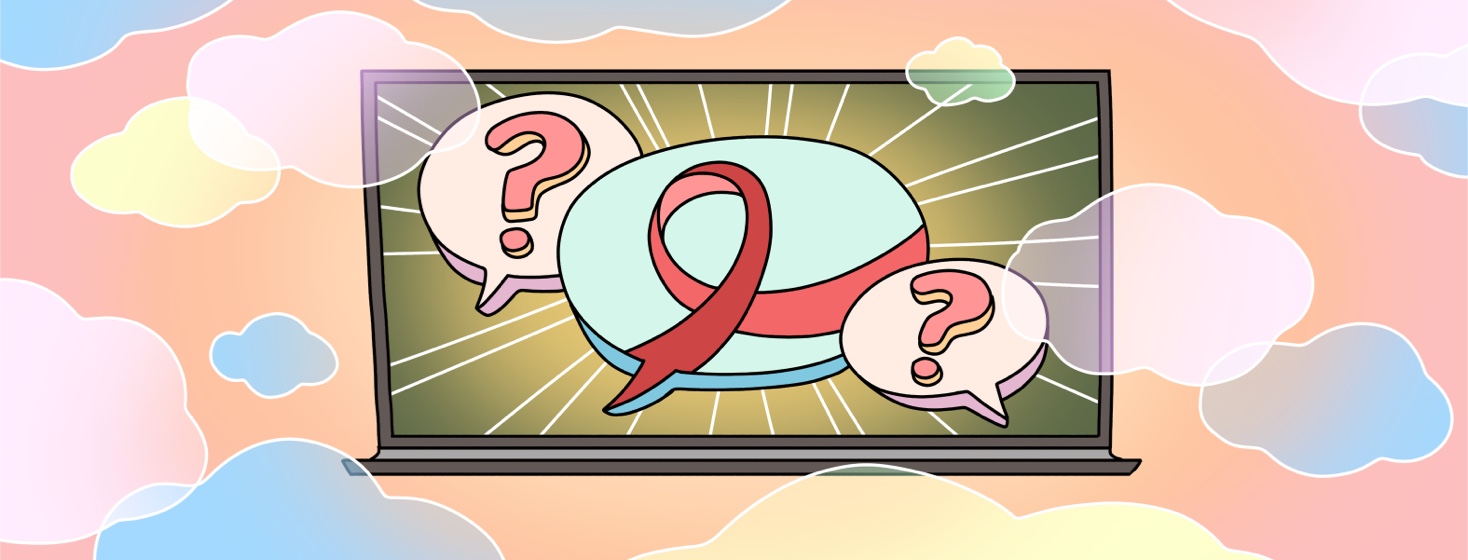HIV 101: Teaching HIV Awareness
As a volunteer, I have the privilege to guest lecture at various high schools, colleges, and universities, teaching HIV 101 and accentuating with my personal experience of living with HIV.
Each school district has varying requirements (restrictions). Many schools adopt an "opt-out" approach so parents feel in control of what their child is exposed to in the classroom. That's practical to me. The inviting teacher provides much of the guidance, and some are more liberal than others.
The schools are widely diverse. Some have mixed Health Classes from poorer communities and wealthy neighborhoods across the river. This certainly makes for an interesting mix of opinions.
Creative approaches to education and outreach
In some of the longer periods, I can to demonstrate how to use a condom but often restricted to using wooden objects. I can show different samples of prophylactics, for example, styles, flavors, and dental dams, but I cannot distribute them to minors. One of the keenly aware teachers asked students on the sly to meet me in the parking lot to obtain contraband prophylactics – I always kept a supply in my trunk.
Drug and alcohol programs are also a good target to educate those most at-risk. I have more freedom partnering with Planned Parenthood in after-school programs for at risk students to provide my perspective on living with HIV.
At one of the local county jails, I obtained permission to bring in a pink dildo named "Prince" for demonstration purposes in the lady's pods. It is the parole officers that are most surprised. We have to count the condoms going in and coming out for safety purposes.
Teaching HIV awareness
Most of the classroom guest lectures focus knowledge on the science of HIV, transmission, and protection. Advances in science often modify the lecture, such as study results showing undetectable = untransmittable (U=U). We always intersperse our education with common STIs and their highest rate statistics. It is important to convey that sexual health is not always just about HIV.
Significant to every period is to ensure that my personal perspective is revealed.
HIV education and sharing my personal experience
After learning about HIV, I would then say, "I, too, am living with HIV." I would give a brief review of my history and open a Q and A session with students.
Students with conservative values would often show off their courage, exclaiming this could not happen to them because they would not have sex until marriage. While I may have considered some of this naïve, it certainly gave them certainty of their own resolve.
I can remember some younger students in shock to openly discuss sex in this way. I feel it is important to use the proper terms openly so students can feel comfortable discussing risks before finding themselves in emotionally or physically awkward situations. Kids, especially, can easily be shocked but often remember those moments as important to their lives.
Dispelling myths and misconceptions through educating
After LGBTQIA+ Marriage Equality was affirmed, I attended a community street rally in celebration with members of my LGBTQIA+ church group. A young woman approached me and asked if I had spoken at her school. Of course, I had, and for her to remember me made it clear I had made a major impact on her life. She was now studying nursing at the University of Pittsburgh. I was honored that she remembered who I was. My message remained front and center in her journey to becoming a medical professional.
Many young people are just naïve. It is a perfectly good word to use because I am also naïve of several things – I don't perform brain surgery, so I am naïve about it. Learning is our method of changing naïveté into knowledge and experience into skill. Sharing my experience with stigma also helps dispel myths and guides students to honest conversations without judgment or prejudice.
In this age of social media, or "social manic," as I like to call it, so much misinformation is spread and liked that it often becomes what people believe to be true. I can hear it in the questions that are asked.
"Can you get 'it' from a toilet seat?"
"I heard Magic Johnson is cured, right?"
"My mom says that only gay people get AIDS, right?"
My answers: no, no, no, but then I always explain why, either in practical or scientific ways, to ensure that students embrace knowledge and stop spreading misinformation. Stigma is a mystical beast that keeps evolving. My objective is to find trustworthy and relevant resources like many available right here on H-I-V.net, that dispel myths and reduce stigma. What you now know about HIV saves lives!

Join the conversation